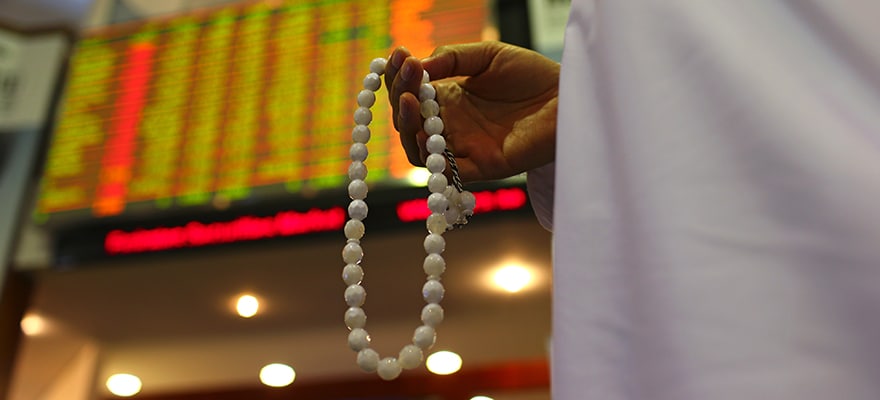While cryptocurrency mass adoption in the Middle East may still take a little more time to take place, there are several countries in the region that are truly taking notice.
From the UAE to Saudi Arabia, Bahrain, and Lebanon, some private and public entities are willing to take the risk by embracing the new technologies earlier than the others. However, there are also other countries that decided to crack down on anything involving cryptocurrency.
That being said, one of the focal points that should be taken into consideration when analyzing the nascent industry is that adoption in this region is mainly driven from the top down. Government agencies and traditional banks, though historically known as the slowest technology adopters, are the main players diving right into crypto transformation.
The region boasts some of the wealthiest nations in the world, with GDP per capita, ranges from $50,000 to $130,000 in the Gulf states, thanks to large reserves of oil and other lucrative natural resources. However, the spending on the digital economy and its share of Arab countries’ GDPs is a mere low single-digit. Conventional sectors, such as real estate and stocks, are still monopolizing private investments, spending, and conversations.
So it could be a bit frustrating for crypto enthusiasts to watch the slow pace at which Arab investors are reacting to the crypto phenomenon.
Regulators caught up with the hype
But with such a hype surrounding cryptocurrencies, the virtual asset class may have enticed retail investors, with many utilizing cryptocurrency as a speculative asset to take advantage of price fluctuations.
All in all, the innovation and private investments in the crypto space have been and will remain lagging far behind other regions, including emerging nations, as in fact, they are nowhere. However, regulators, caught up with the much-hyped vision of crypto, have likewise others begun to investigate Blockchain and cryptocurrency technology. And while they are expected to continue to push ahead with regulations, this may ultimately wake up the wealthy investors base to the opportunities that the new business offers.
The crypto timeline in the Arab world
Various countries in the Arab world have emerged as early adopters, and they’re poised to become even more influential in the near future.
Currently, at the frontier of Fintech adoption, Saudi Arabia and the UAE have announced plans to launch a digital currency to serve both countries. Dubbed ‘Aber,’ it was announced in November on an experimental basis to facilitate financial settlements between the two Middle Eastern nations, which have a combined economy of over $1.2 trillion.
The government of Dubai has also revealed details of its own digital currency, called emCash, which will be used to pay for government and private services in the city.
Ripple, a US-based crypto Payments company, is already working with Saudi and Emeriti banks to legitimize cryptocurrencies further. It has inked partnerships with Saudi Arabia's de facto central bank to pilot instant cross-border payments. According to Ripple, more than fifty financial institutions in the Middle East revealed their interest in its solutions that enable cross-border money transactions in a faster and cheaper way than the current systems allow.
Regulation is hot on the table
Regardless of the regulatory stance, policymakers in the Middle East are aware that the adoption of the cryptocurrencies appears inevitable. Those going bigger on this track are wary of the combination of the potential benefits and risks, as well as factors that determine policy openness or aversion.
The UAE has already taken steps to regulate the way that blockchain start-ups are raising money – initial coin offerings– though the nation’s regulators continue to warn of the many risks involved. The watchdog proposed a fit-for-purpose regulatory framework that effectively recognizes digital tokens as securities.
Under the guidelines, startups wishing to execute an ICO must approach the SCA to see if it falls under the body’s regulation. Also, market intermediaries and secondary market operators dealing with ICOs must be approved by the regulator. ICO operators will have to publish a prospectus, just like a firm would for an IPO on the stock market. And if an ICO has the characteristics of a security, such as giving a person ownership of shares in a company, then the SCA will regulate it.
In addition, Abu Dhabi's financial regulator granted approval for Arabian Bourse, which allows the startup to operate a full-fledged crypto-asset exchange and digital custodian in the emirate.
Other countries are catching up
Bahrain is also establishing itself as a blockchain pioneer in the region. Indeed, the smallest Middle Eastern nation isn’t too far behind with its numerous initiatives to attract cryptocurrency business. On the one hand, Bahrain Central Bank has approved the crypto-asset exchange Rain Crypto Exchange to go live, post their partnership with global exchange Bittrex. Rain received its node after a two-year regulatory sandbox process under the central bank’s supervision.
Other countries like Saudi Arabia, Egypt, and Kuwait are also said to have taken notice. Their regulators have drafted different bills allowing central banks to issue rules regulating cryptocurrency activities and blockchain-based finance. The new rules reflect a U-turn from last years’ crackdown that said that cryptocurrencies are an entirely non-sharia compliant business.
Meanwhile, there has been a lot of debate on the use of virtual coins as a legitimate form of currency and investment as Islamic law emphasizes real economic activity based on physical assets and without pure monetary speculation.
All economic activity in Islamic finance must be compliant with Sharia law, which has stringent rules to ensure certainty and immediacy of transactions. Islamic law also prohibits the acceptance of interest or fees for loans of money.

















